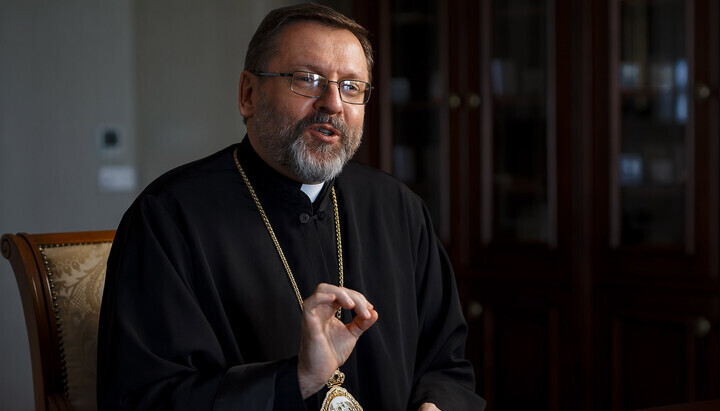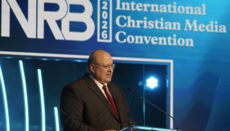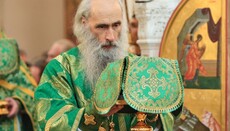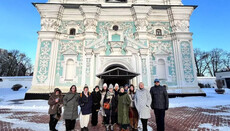Shevchuk approves UGCC's euchologion of exorcisms

The prayer book states that an exorcist priest acts not on his own, but as a representative of the Church.
The head of the UGCC, Major Archbishop Sviatoslav Shevchuk, has approved and promulgated the Ukrainian text of the Euchologion of the Rite of Major Exorcism.
The corresponding decree was signed following the approval of the text at the Synod of Bishops of the UGCC, which took place in Rome.
The prayer book states that once approved by the bishops, “the priest–exorcist acts not on his own behalf but as a representative of the Church, authorized and sent by her to act in the name of the Lord Jesus Christ.”
“After being approved by the Church (the Synod), all the rites of exorcism contained in the Euchologion acquire the status of sacramentals, which raises the ministry of the exorcist priest to a qualitatively new level of effectiveness – both in helping people who suffer from the influence of the evil spirit and in ensuring the safety and protection of the priest himself,” the text says.
At the same time, it explains that any other prayers and rites of exorcism not officially approved in the Manual of Exorcism adopted in the Catholic Church “belong to the category of private exorcisms, which operate ex opere operantis – by the action depending on the faith, spiritual, and moral state of the exorcist.”
The Manual of Exorcism of the Roman Catholic Church distinguishes four types of extraordinary demonic influence upon a person: possession (possessione), obsession (ossessione), vexation (vessazione) – when the demonic action is directed against a human being; and infestation (infestazione) – when the influence concerns objects used by a person.
“Possession (possessione) refers to an action by which an evil spirit can exercise despotic control over the human body and, at certain moments – moments of ‘crisis’ – move and/or speak through the body of the possessed person in such a way that the victim is unable to prevent it, even while fully aware of what is happening.
Demonic obsession (ossessione) refers to an action by which the demon attacks and torments a person inwardly, in the psychological sphere. This aggression is directed at the human intellect and free will not directly but through the five senses (sight, hearing, smell, taste, touch), as well as through imagination and sensory memory, imposing various negative inner states (depression, disbelief, sorrow, etc.).
Demonic vexation (vessazione) is the devil’s action aimed at attacking and physically tormenting a person; yet, while the devil causes bodily suffering, he does not take control of the body – the person’s body remains under the control of their reason and will.
Demonic infestation (infestazione) is an extraordinary demonic activity whose object is places or things (including animals) used by people. While in cases of possession, obsession, or vexation the evil spirit attacks the person directly, during infestation it harms the person indirectly by damaging the objects that serve him,” the text says.
Earlier, the UOJ reported that in Ivano-Frankivsk, Greek Catholics and the OCU held a memorial prayer service for the repose of Stepan Bandera.











